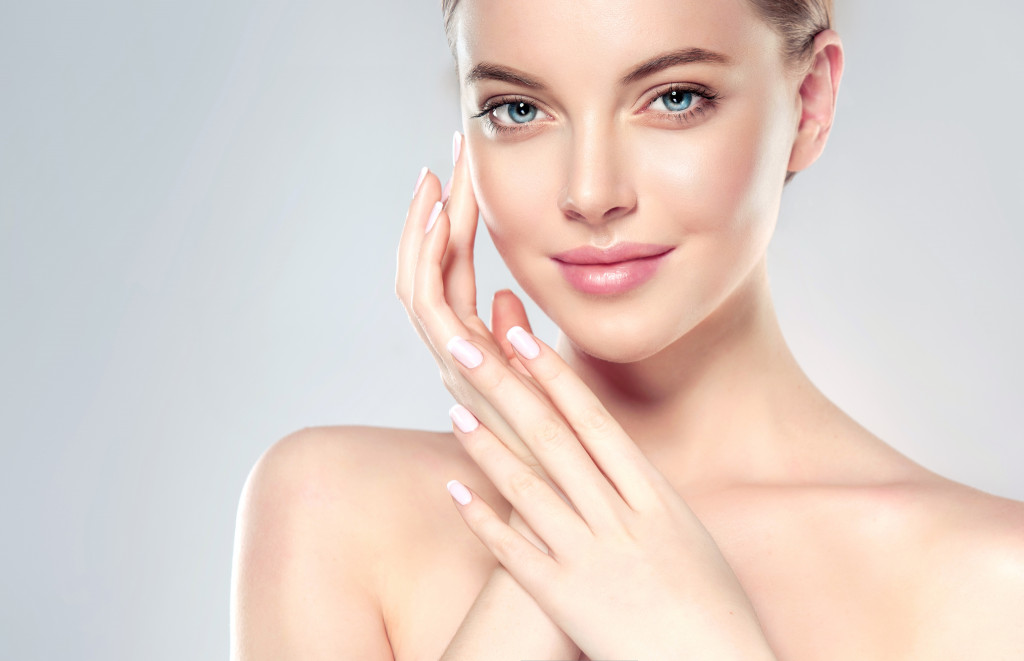- Identify skin type and use products tailored to it for optimal results.
- Create a consistent skincare routine with cleanser, toner, moisturizer & sunscreen.
- Understanding dermal procedures can help treat specific skin issues or enhance appearance.
- Proper sun protection & regular skin care is essential for clear, healthy skin.
Having clear and healthy skin has many benefits, both physical and psychological. Physically, having clear skin can reduce the risk of developing skin infections or other issues related to poor skin health. Additionally, it can help protect against harmful UV rays, preventing premature aging and potential skin cancer. Psychologically, people with clear and healthy skin often have higher self-esteem and confidence due to feeling more attractive.
Studies have also shown that having clear and healthy skin can significantly improve quality of life (QoL). For instance, a 2014 study published in the Journal of Investigative Dermatology found that individuals with acne experienced decreased QoL scores across multiple domains, including social functioning, mental health, self-confidence, moods, emotions, and overall physical functioning. Similarly, another study from the same year published in the American Journal of Clinical Dermatology found that improving acne severity was associated with significant improvements in QoL scores.
However, maintaining clear and healthy skin will require dedication and regular attention. Here are a few tips to help you with the process:
Identifying Your Skin Type

Knowing your skin type is essential for caring for your skin and keeping it healthy and clear. Different skin types require different moisture levels, meaning the products you use must be tailored to your needs. For example, dry skin will need more moisturizing than oily skin. Additionally, those with acne-prone or sensitive skin should be extra careful when selecting skincare products, as some ingredients can further irritate or worsen the condition.
It’s also important to take note of any changes in your skin type over time and adjust accordingly. For instance, you might find your skin drier in winter and need more hydration. Or if you find that a particular product is not working well for you anymore, it could indicate a shift in your skin type that requires a different approach to care.
Understanding one’s skin type allows for an informed decision when selecting products and a better appreciation for the nuances of their unique needs. It also helps to build an overall picture of what works best for their case, so they can adequately assess the effectiveness of each item they try out. Ultimately, this knowledge can lead to healthier and clearer skin in the long run.
Creating a Skin Care Routine
Creating and following a consistent skincare routine is crucial to keeping your skin clear and healthy. A regimen you can stick to daily ensures that your skin gets the nourishment it needs to remain in optimal condition. It also helps prevent any potential issues from arising or developing. Here are the basics of what each product is and how they should be used:
Cleansers
Cleansers help to remove dirt, impurities, and makeup from your skin without stripping it of its natural oils. Cleansing should be done twice daily – once in the morning and once before bed – using lukewarm water and a gentle cleanser that matches your skin type. Avoid overly hot or cold water, which can damage the skin’s outer layer.
Toners
Toners can help balance out the pH levels of your skin after cleansing. They also help to reduce inflammation, minimize pores, and restore moisture levels. Toners should be used once daily after cleansing – either in the morning or at night – depending on what works best for you. Alcohol-free toner is vital as alcohol can dry out the skin too much.
Moisturizers
Moisturizers are essential for helping maintain skin hydration levels while protecting against environmental aggressors such as pollution or UV rays. Moisturizing should be done twice daily – once in the morning and once before bed – using a cream specifically tailored to your skin type that includes both humectants (moisture attractors) and occlusives (moisture barriers).
Sunscreens
Sunscreen is essential for protecting against UVA/UVB rays, which can cause premature aging and increase the risk of skin cancer. Sunscreen should be worn daily regardless of weather conditions or season, as UV rays penetrate through clouds or windows even when it’s not sunny. Make sure to wear an SPF 30+ sunscreen with broad-spectrum coverage (protects against both UVA & UVB rays) every day when going outdoors during daylight hours between 10 am – 3 pm when UV exposure is highest.
Utilizing Dermal Procedures

Dermal procedures may sometimes be needed to treat certain skin conditions or enhance appearance. Dermal fillers, for example, help reduce wrinkles and add volume to areas of the face such as the lips and cheeks. However, it is essential to consult a doctor before undertaking any dermal procedure, as complications can arise if done incorrectly.
You can also consider other dermal procedures such as dermaplaning, chemical peels, dermabrasion, and laser treatments to treat issues such as acne scars or age spots. Again, it is essential to have a doctor’s consult before undergoing any dermal procedure.
Final Thoughts
Taking care of your skin is essential to a healthy lifestyle. It helps maintain optimal physical and psychological health, so paying attention to what works best for you and making the necessary adjustments to achieve clear, healthy skin is essential. The tips outlined above can help guide you on this journey toward better skin health. With consistency and dedication, you can keep your skin looking its best!






